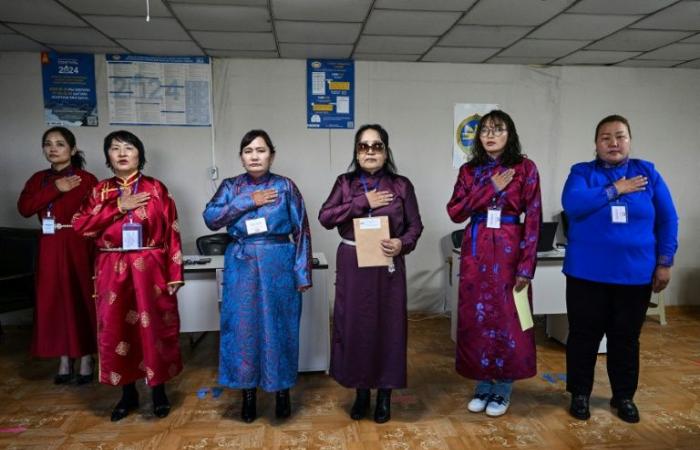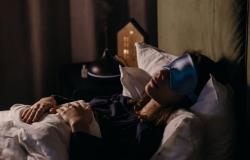Dressed in traditional Mongolian clothing, voters at a rural polling station take a muddy road at daybreak to vote in the legislative elections, organized Friday in this country of 3.4 million inhabitants.
All this week, the streets of the capital Ulaanbaatar have resonated with the noise of meetings and the slogans of activists pronounced from cars covered with electoral propaganda posters.
Mongolia’s political system, democratic, with its many debates and wide choice of candidates, contrasts with those of its Chinese and Russian neighbors.
More than an hour’s drive south of Ulaanbaatar, on a bumpy mud road in Sergelen canton, the opening of polling stations gives rise to typically Mongolian scenes.
Moments before voting was due to begin, a cow wandered into the area surrounding the polling station, forcing a police officer present to move it away.
And while the morning sun is still low on the surrounding green hills, a loudspeaker installed outside broadcasts lively Mongolian pop.
After listening to the national anthem, poll workers begin to bring in the first voters.
– Wheat and livestock –
Young and old flock to the polls as soon as they open at 7 a.m. Many of them wear traditional Mongolian clothing.
Among them is one of the oldest women in the region. She greets the assessors, fills out her ballot before slipping it into an electronic voting machine.
Snacks are left near the door: a bowl with sweets, as well as a plate of traditional Mongolian cheese.
First to vote on Friday is Batsaikan Battseren, a former herder who represents the ruling Mongolian People’s Party (PPM).
“I always want to be the first to vote, in every election,” he says. “I think every citizen should vote.”
According to him, voters here usually vote evenly between the PPM, whose victory is expected, and the main opposition movement, the Democratic Party.
Batsaikan Battseren’s main priority, he says, is to ensure that his local community, which includes many livestock farmers, receives the help it needs.
“The wheat sector exports a lot while our Mongolian breeders desperately need it,” he emphasizes.
– “Our homework” –
But he says he places his hopes in the current government and the creation of a fund to better redistribute the benefits of the country’s vast natural resources.
“I hope times will be better in the future,” he says.
Further away, in the town of Nalayh, in another polling station located in a small hospital surrounded by yurts, a more technological device is used.
When voters show up to vote, a large screen displays their photo ID along with real-time data on turnout.
Accompanied by her husband and their young son, Tsagaantsooj Dulamsuren told AFP that she would like mothers like her to receive more support. “I don’t think the government supports mothers,” she says.
Bayanbileg Oyunchimeg, a 37-year-old civil servant dressed in a white dress, told AFP she hoped that the candidates she had chosen “will do a good job” over the next four years.
She particularly emphasizes the importance of voting: “It’s our duty,” she emphasizes.
Do you have a real estate project in mind? Yakeey & Médias24 help you make it happen!






